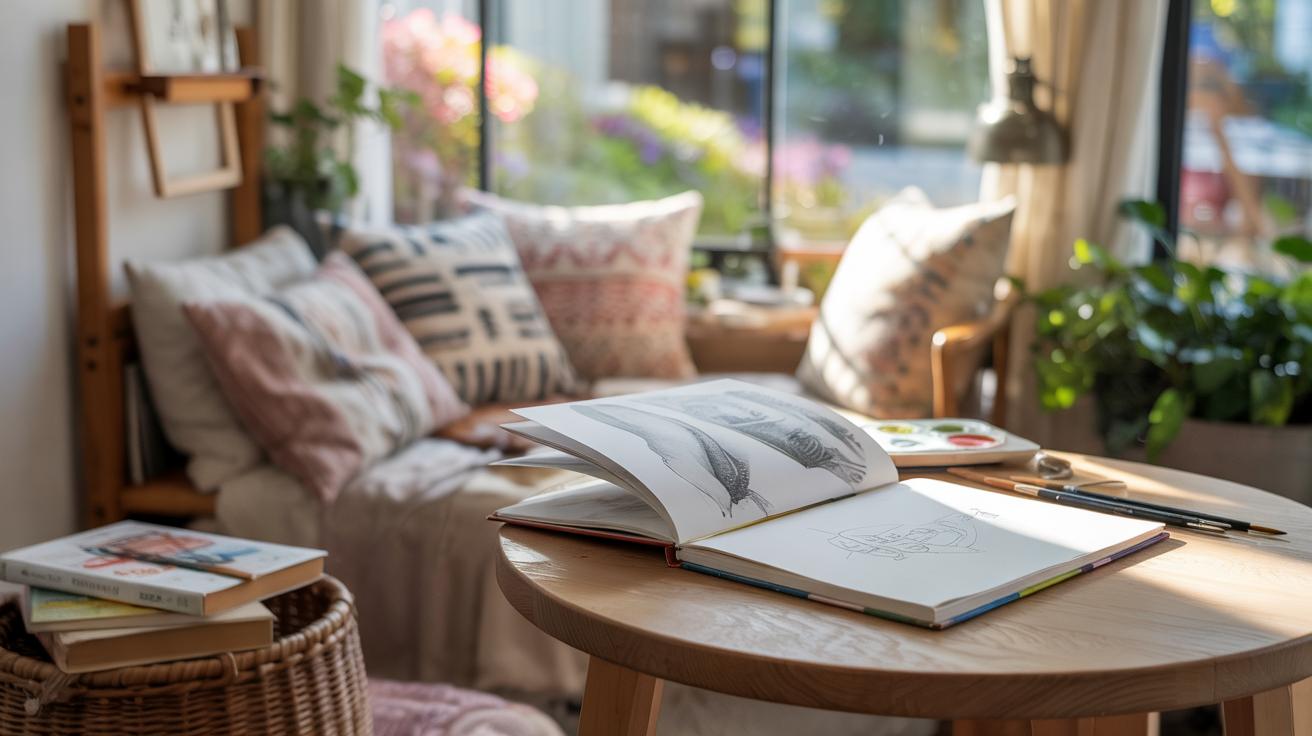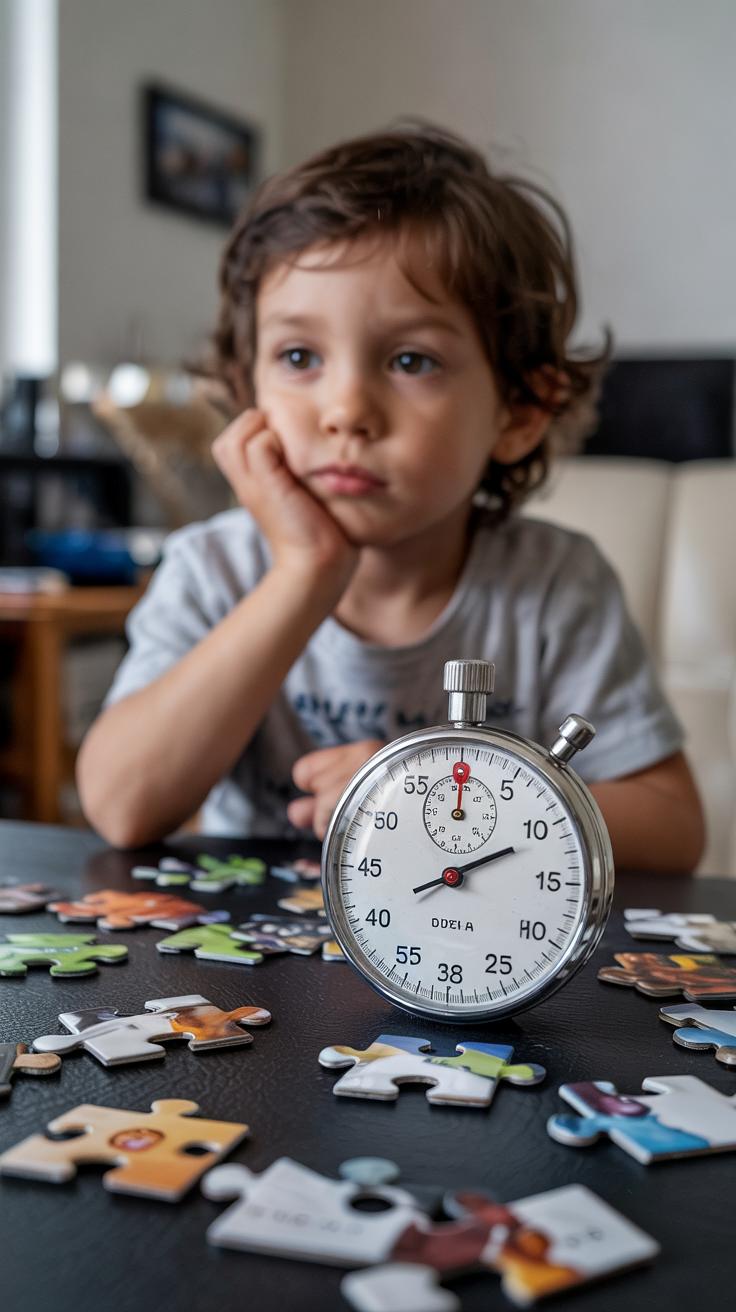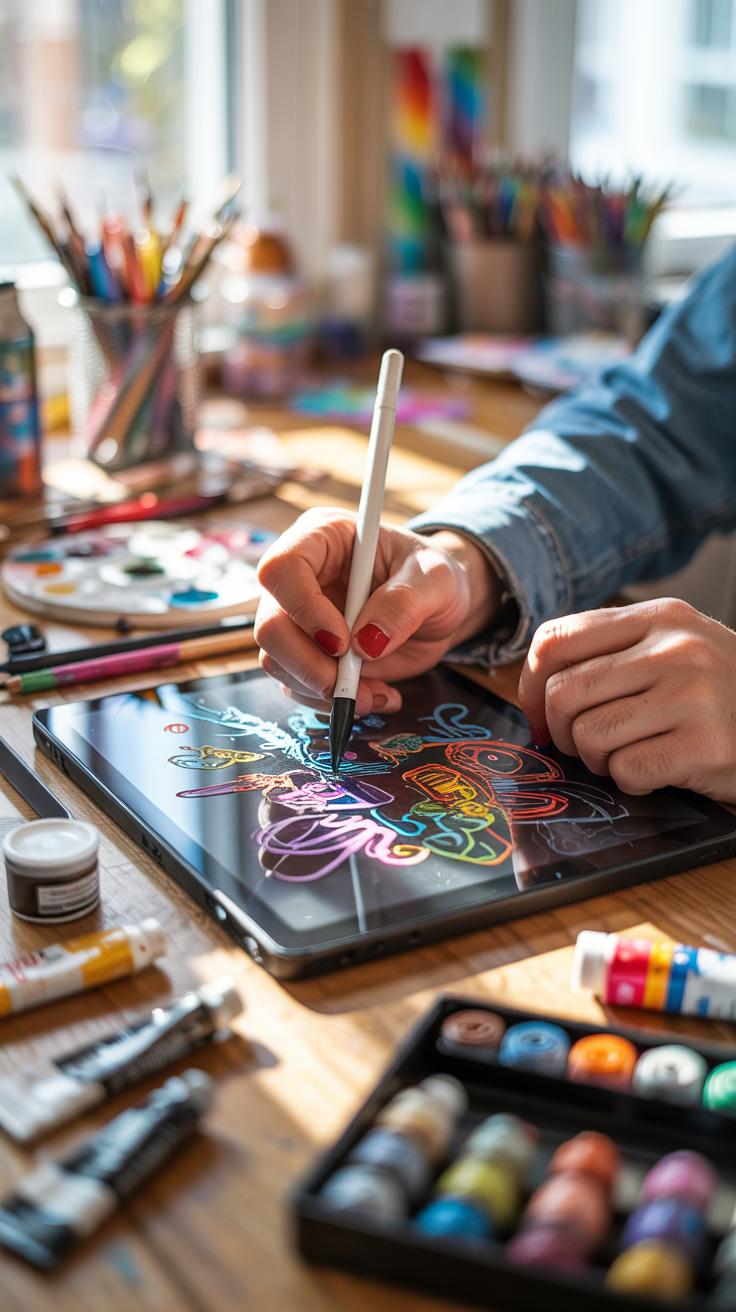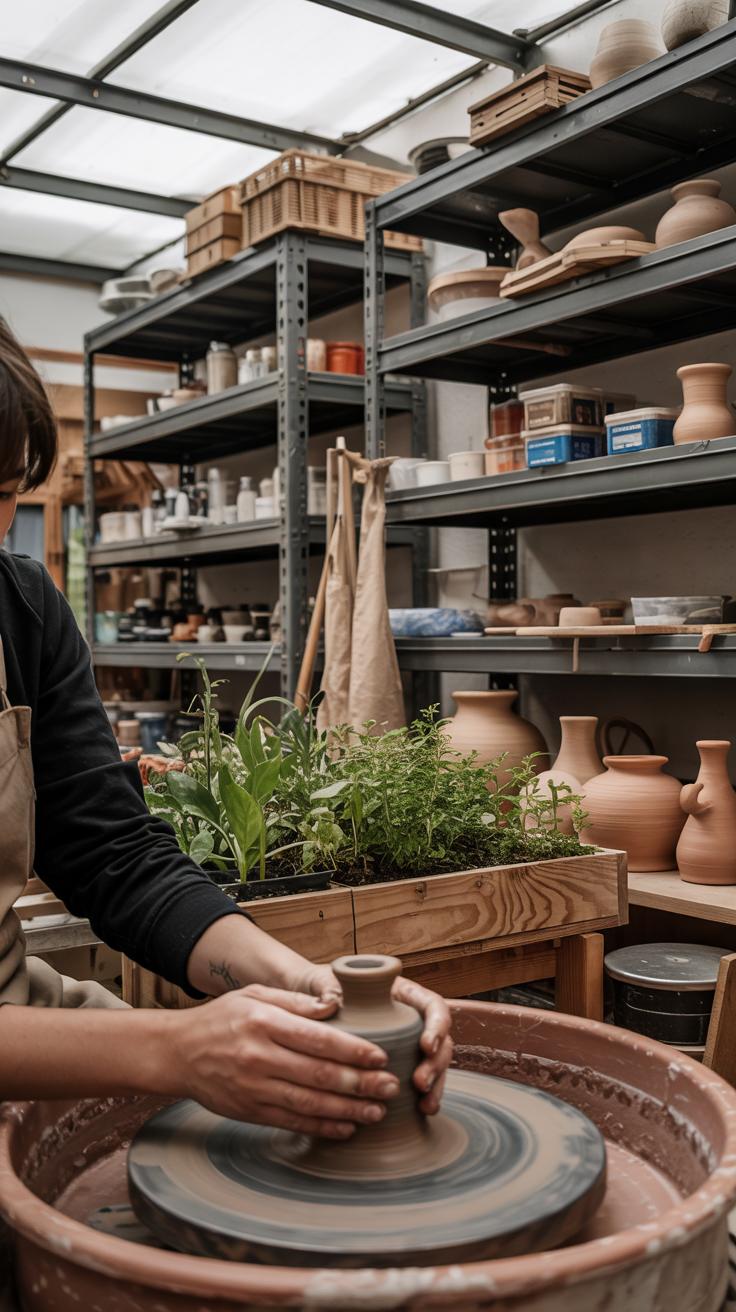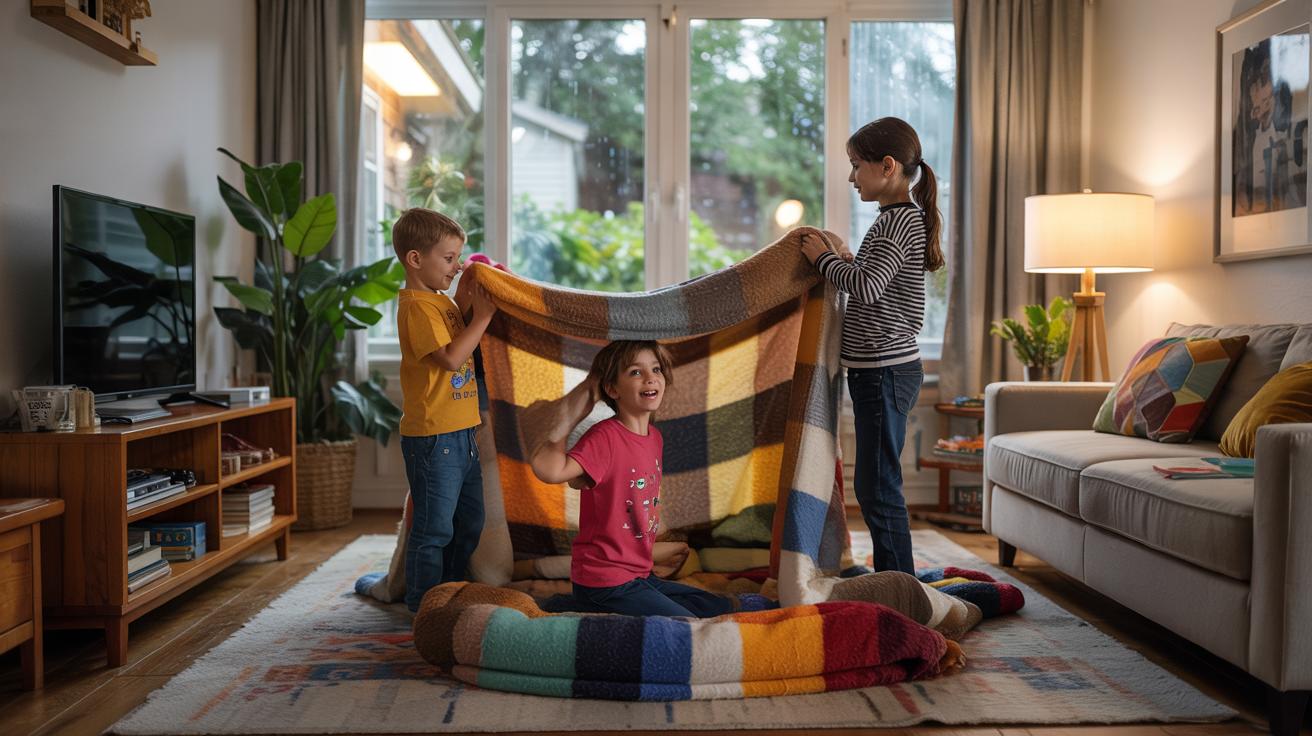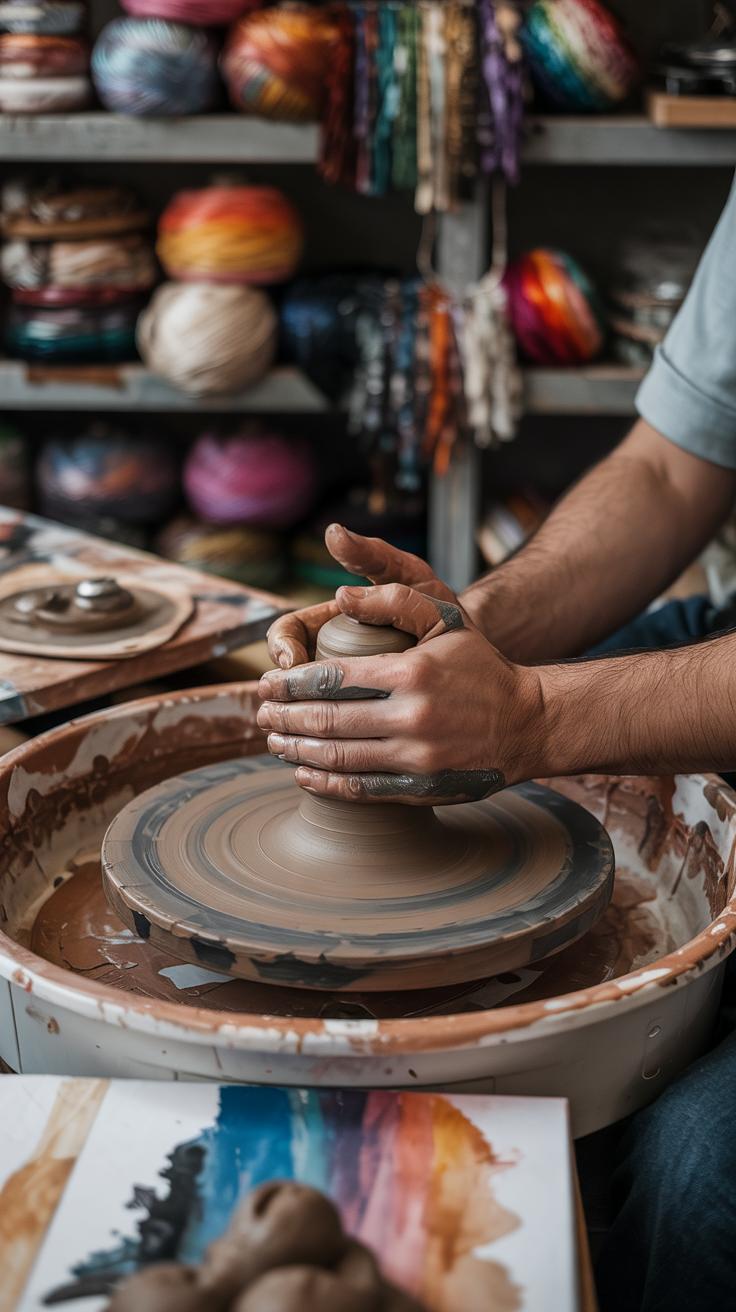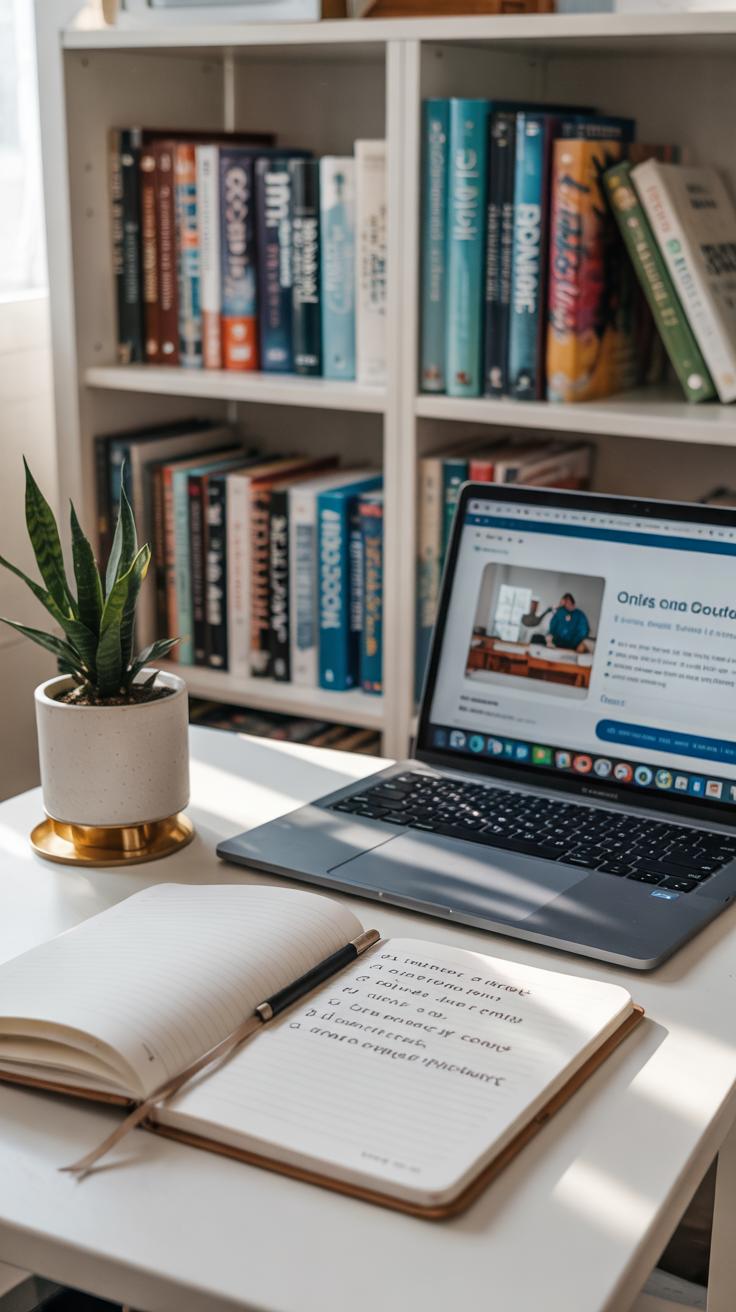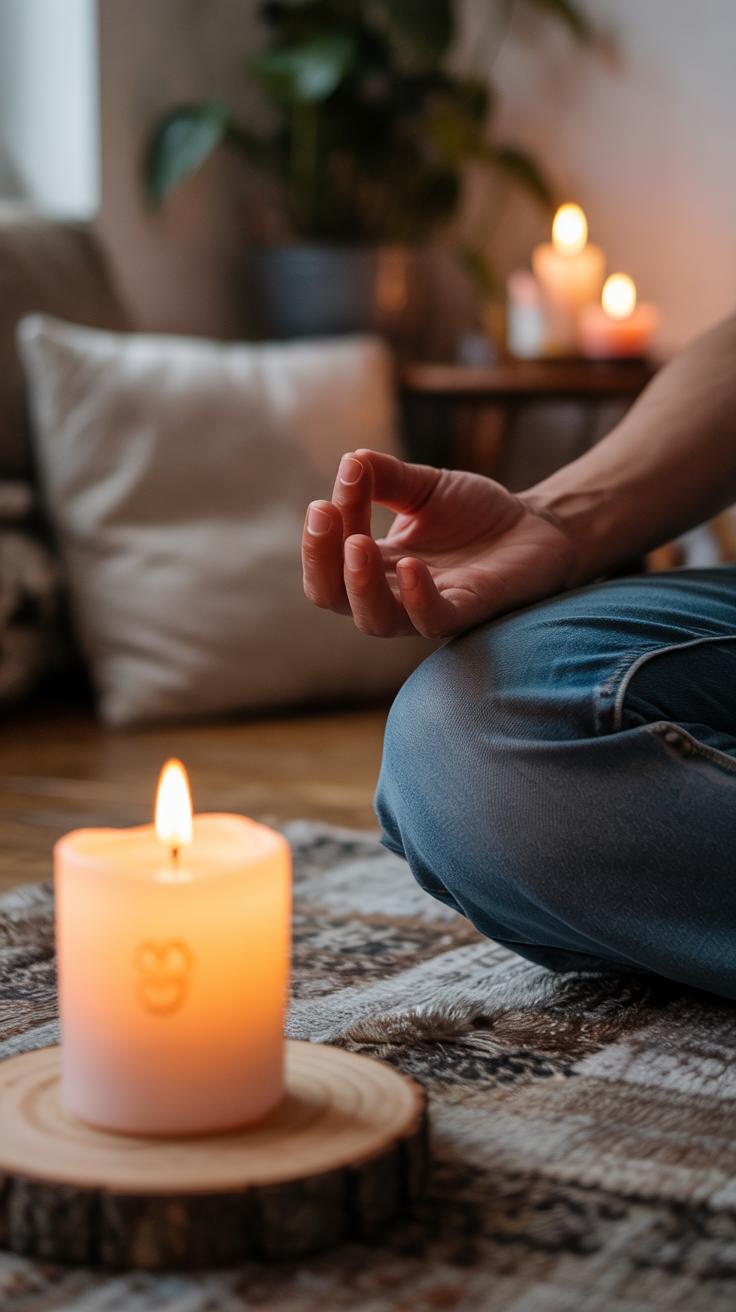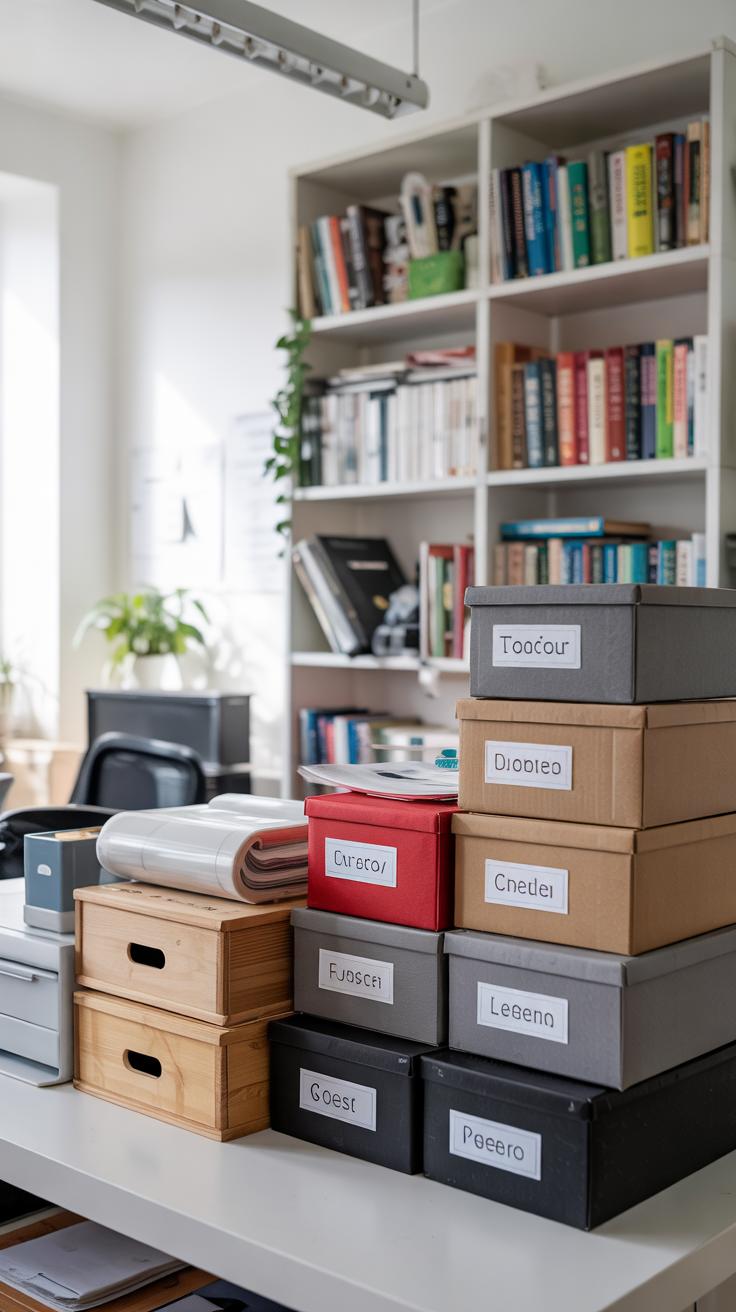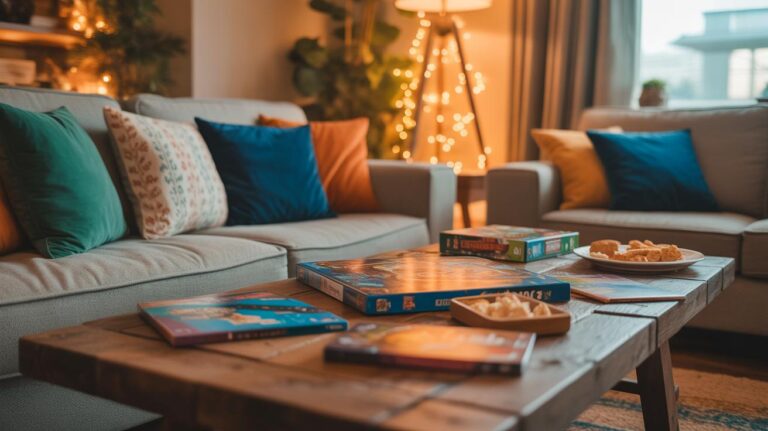Introduction
Boredom often arrives when your surroundings fail to hold your interest. This feeling is triggered by a lack of engaging activities or distractions. Unlike depression or apathy, boredom is a distinct emotional state that makes you crave change or stimulation. It affects your mood and behavior and can be harmful to your well-being. Yet, boredom is not just negative; it can also be a prompt for creativity and new endeavours.
When boredom strikes, you face a choice: let it linger or transform it into productive action. Creativity activates your mind, turning a dull moment into an opportunity for invention or learning. Finding creative ideas to overcome boredom can help you stay active, develop new skills, and enhance your mood. This article lays out practical actions and creative options to help you turn boredom into something meaningful.
Understanding Boredom and Its Effects
Boredom is a mental state that emerges when your mind lacks stimulation. You might feel restless or uninterested because nothing engages your attention. This differs from depression, where feelings of sadness or hopelessness persist, or from apathy, when you simply don’t care. Boredom feels more like impatience with the present moment itself.
Psychologically, boredom lowers motivation and focus. You may find it harder to concentrate or feel irritable. Behaviorally, boredom can lead you to seek out distractions or try new activities to escape the dullness. Although boredom feels unpleasant, it can push your brain to look for something different or meaningful.
Consider the times you’ve been bored and suddenly thought of a new hobby or project. That urge to change your situation shows how boredom can spark creativity rather than just discomfort.
What Causes Boredom
Boredom comes from situations where your environment doesn’t challenge you or offer variety. Repeating the same tasks with little mental effort can make time drag. When you perform simple chores over and over, your brain gets under-stimulated.
Lack of social interaction can also fuel boredom. Your brain seeks connection and feedback, so minimal contact with others leaves it craving something more engaging. The feeling boosts when you’re alone with few activities to pick from.
Your sense of time changes during boredom. Minutes tend to stretch and feel longer because you watch the clock instead of being absorbed by what you do. This distorted time perception makes boredom harder to tolerate.
How Boredom Influences Behavior
Boredom often causes restlessness. You might pace, fidget, or try to fill silence with phone scrolling or snacking. These behaviors show your brain looking for stimulation.
Sometimes boredom leads people to risky choices, like impulsive spending or unhealthy habits, as a way to break monotony. Yet, boredom also opens the door to new opportunities. It can motivate you to learn skills, start creative projects, or connect with others in fresh ways.
Think about what you usually do when boredom strikes. Do you reach for your phone, or do you try something new? Identifying your reactions can help you manage boredom better and use it to your advantage.
The Role of Creativity When You Are Bored
Boredom triggers your brain to seek new experiences. When you feel unstimulated, your mind looks for fresh input. This urge helps launch creative thinking. Creativity means coming up with ideas or actions that are original and useful. It goes beyond daydreaming—it solves problems and lets you express yourself.
When your brain pushes past boredom, it often finds new ways to do things. You might invent a new game or write a story. These creative acts fix the dullness by mixing imagination and purpose. Think about a time you felt bored. Did you try something new or find a fresh angle on a task? That’s your creativity at work, turning boredom into action.
Creativity connects your inner world to the outside. It allows you to take control when things feel empty. By creating, you not only overcome boredom but also discover new parts of yourself and your environment. What original idea can you come up with right now?
Creativity as a Response to Boredom
Science shows boredom sparks creative thinking. When your mind lacks stimulation, it starts to wander and make new connections. This mental state encourages ideas that are different and effective. Studies find people often solve problems better after feeling bored because their brains look for challenges.
Examples of creative activities born from boredom include doodling during a slow class, writing poems when stuck at home, or inventing new recipes with random ingredients. These acts aren’t just pastimes; they come from your brain’s need to break monotony. Next time you feel bored, try sketching, journaling, or crafting something. How might boredom inspire your next creative project?
Benefits of Being Creative During Boredom
Engaging in creative activities while bored brings many benefits. Physically, it can reduce tension by giving your body small tasks like drawing or knitting. Mentally, it lowers stress and lifts your mood by focusing your attention on something rewarding. Your brain releases feel-good chemicals when you create.
Creativity also sharpens skills like problem-solving and critical thinking. Socially, sharing your creative work connects you with others and builds confidence. Imagine how making a simple handmade card could brighten someone’s day and strengthen your bond. How can using creativity during boredom improve your well-being today?
Exploring New Hobbies to Beat Boredom
Hobbies are activities you do regularly for fun or relaxation. They can include things like collecting stamps, playing sports, painting, or writing stories. Each hobby offers a way to enjoy your free time differently.
Trying a hobby helps you learn new skills. For example, knitting teaches patience and coordination, while playing soccer improves teamwork and fitness. Hobbies give you a chance to focus on something that interests you, which can turn boredom into a rewarding experience.
When you pick up a hobby, you add structure to your day. This can bring satisfaction by seeing your progress, like building a model airplane or growing a small garden. Are you ready to find a hobby that fits your lifestyle?
Selecting a Hobby That Fits You
Choosing a hobby starts with thinking about what you like. Do you prefer quiet activities or something more active? Your available space matters too. If you live in a small apartment, gardening outside might be tough, but indoor plants or drawing could work well.
Consider the time you want to spend. Some hobbies need little time, like reading or puzzles. Others, such as learning an instrument, require more commitment. Look at your budget too. Some hobbies need many supplies, while others are free or low-cost.
Ask yourself what you want from a hobby. Do you want to relax, meet people, or challenge yourself? This will help you pick something that fits well with your interests and daily routine.
How Hobbies Improve Your Life
Hobbies keep your mind focused on one task, helping you forget about stress and boredom. When involved in a hobby, your brain works by solving problems or creating something new. That mental exercise improves your skills over time.
Many hobbies connect you with others. Whether you join a book club, a sports team, or an art class, these social activities can reduce feelings of loneliness and build friendships.
Hobbies also help you grow personally. They may teach discipline, patience, or boost your confidence as you improve. What skills do you want to gain? Finding a hobby can guide you toward those goals while making your free time more enjoyable.
Physical Activities to Refresh Your Mind
Physical movement can break the cycle of boredom and recharge your energy. When your mind feels stuck, your body might need action to reset. Activities that involve your muscles increase blood flow and oxygen to your brain, boosting alertness and mood.
Indoor exercise works well when you can’t get outside. Try simple stretching routines or yoga sessions to loosen tight muscles and clear your thoughts. Bodyweight workouts like squats, push-ups, or jumping jacks require no equipment and build strength. You don’t need to be an athlete. Even short bursts of movement can bring relief.
If you want to step outdoors, walking around your neighborhood, jogging in a park, or gardening can refresh your perspective. These activities bring you closer to nature, which lowers stress and sparks creativity. Do you notice how fresh air changes your mood? A change of scene can inspire new ideas and help you feel more focused when you return indoors.
Simple Exercises at Home
Stretching helps your body feel more awake. Reach for your toes, touch the ceiling, or twist gently side to side. These moves stimulate blood flow and ease tension after sitting too long.
Yoga combines gentle stretches with breathing to calm your mind and improve flexibility. You can use online videos or apps for guided routines. Even a ten-minute session can boost your energy and reduce restlessness.
Bodyweight exercises like squats, lunges, or wall push-ups work your muscles without gear. Try doing sets of 10 or 15 reps at your own pace. These exercises improve your fitness and give your brain a break from boredom.
Outdoor Activities for Change of Scenery
Walking is one of the easiest ways to get moving outside. Try exploring new streets or paths to add variety. Walking can give you time to think, daydream, or solve problems.
Jogging raises your heart rate and releases feel-good chemicals in your brain. You don’t have to run fast or far—start with a few minutes and build up to longer sessions as you feel comfortable.
Gardening connects you with nature and creates a calming routine. Planting seeds, watering flowers, or tending to vegetables engages your hands and mind. Watching your plants grow gives a sense of progress and accomplishment.
Creative Arts to Express Yourself
Creative arts like drawing, painting, writing, and music offer powerful ways to channel your thoughts and emotions during boring moments. When you create something, your mind shifts focus from dullness to imagining new ideas. This shift stimulates your brain and brings fresh energy.
Drawing and painting encourage you to look at the world closely and translate what you see or feel onto paper. Writing stories or poems helps organize your thoughts and invent new worlds or express feelings you might not speak out loud. Learning music or composing your own tunes lets you connect deeply with emotions and rhythm.
These activities can break monotony by involving your senses and feelings. They make boredom a chance to explore what’s inside you. How might your perspective change if you turn boredom into creative time? You don’t need to be an artist to benefit from this. Try simple projects that match your mood and skill level to keep your creativity flowing.
Getting Started with Drawing and Painting
You can start drawing or painting with just a pencil and paper. Begin by sketching simple shapes like circles, squares, or lines. These shapes build the foundation for more complex images. Try drawing objects around you—a cup, a plant, or even your hand. This practice trains your eyes and hand coordination.
Watercolors or colored pencils are easy tools for beginners. Experiment with light and dark shades or blending colors. Give yourself permission to make mistakes; each one teaches you something new. You don’t need fancy supplies. Basic tools and a piece of paper can unlock your creativity.
Ask yourself what catches your attention today. Is it the pattern on a leaf or the way shadows fall on your desk? Use these simple observations to create your first piece. This focused attention keeps your brain active and wards off boredom.
Writing and Music as Creative Outlets
Writing stories or poems is great for putting your thoughts into words. Start by jotting down anything that comes to mind. It could be a feeling, a funny idea, or a memory. Turn that note into a short story or poem by adding details or dialogue.
Try writing about your day or describe a place you want to visit. This practice builds your imagination and storytelling skills. You can also write letters to yourself or others to explore your emotions.
Learning a musical instrument turns boredom into a challenge with achievable goals. Choose a simple instrument like a keyboard or guitar and start by learning basic notes or chords. Play songs you enjoy to stay motivated.
Both writing and music make your mind active and teach patience. They let you communicate without speaking and offer a fresh way to understand yourself. What would you like to tell the world if words or sounds were your tools?
Learning and Personal Development
Boredom offers a clear chance to add new skills or knowledge to your life. When your mind feels empty, use that time to challenge yourself intellectually or practically. Taking online courses helps you learn at your own pace—websites like Coursera, Khan Academy, or Udemy offer thousands of classes on topics ranging from coding to cooking.
Books open up new worlds and ideas. Choose titles that suit your interests or push your limits. History, science, or biography books can expand your understanding of the world and inspire personal growth. DIY projects turn learning into action. Building something, fixing things, or crafting improves your hands-on abilities while keeping boredom at bay.
Finding Resources to Learn New Things
Start by thinking about what excites you or what might boost your career. Use search filters on course platforms to find beginner-friendly or advanced content. Check reviews and course ratings to pick ones that match your learning style.
Local libraries and community centers often carry free materials or workshops. Podcasts and YouTube channels also offer lessons on almost any subject. Ask yourself: What skill do I wish I had right now? Then look for materials that fit your daily schedule and budget.
Applying Your New Skills
Practice is essential to make new skills stick. If you learn a language, try speaking with friends or writing daily journal entries. For coding, build small projects like a website or app.
Bring new knowledge into hobbies. Cooking classes can change your meal routine, while woodworking projects become useful home items. Set personal challenges—try to use your new skill every day for a week to see real progress. How can you turn what you’ve learned into something helpful or fun in your life today?
Social Connections and Interaction
Boredom often signals a need for connection. Interacting with others helps break the monotony and refresh your mind. You might feel isolated, especially when busy or distant from loved ones. However, reaching out to friends, family, or local community groups brings energy and shared experiences. Have you tried calling a family member just to chat or sharing a meal over video? These moments create meaning and lower feelings of boredom.
Think about who you haven’t contacted in a while. A simple message might spark a conversation that lifts your mood. Joining community forums or virtual interest groups also opens doors to new friendships. Social contact encourages you to see different perspectives, which can generate new ideas and creativity. What small step could you take today to connect with others?
Staying Connected Virtually
Technology offers many ways to keep social ties strong when meeting in person isn’t possible. Apps like Zoom, WhatsApp, and FaceTime let you make video calls easily. Scheduling weekly video chats with friends or family creates routine and something to look forward to.
Group chats help maintain ongoing conversations without pressure. Platforms such as Discord or Slack fit this purpose well. If you enjoy games, online multiplayer options let you spend fun time with people anywhere. Could joining a virtual game night or chat group help spark your interest when boredom hits?
Engaging in Group Activities
Joining clubs or classes helps you meet people who share your interests. Whether it’s a book club, cooking class, or fitness group, these activities bring social interaction and learning combined.
Volunteering connects you with others and offers a sense of purpose. Giving time to community efforts creates rewarding social bonds and combats boredom. Do you know local groups or nonprofits seeking help? Taking part might be exactly the change you need.
Mindfulness and Relaxation Techniques
Mindfulness practices like meditation and deep breathing help reduce stress and boost your ability to focus. When boredom hits, your mind often wanders, making it hard to feel engaged. Mindfulness pulls your attention back to the present moment. This shift calms your thoughts and can turn boredom into a chance to rest and refresh.
Try sitting quietly and paying attention to your breath. You can do this anywhere—on a break, in your room, or even outside. By focusing on your breathing, you train your brain to stay steady rather than drift into boredom or distraction.
When you feel restless, ask yourself: What sensations am I noticing right now? This simple question helps move you past boredom by opening your awareness to the here and now. Practicing these techniques regularly builds your mental stamina and keeps your mind clear.
Simple Mindfulness Exercises
Start with deep breathing: breathe in slowly for four counts, hold for four, then exhale for four. Repeat this process five times. You can do this sitting or standing.
Another exercise is the “5-4-3-2-1” method. Notice five things you can see, four you can touch, three you can hear, two you can smell, and one you can taste. This sensory check-in brings your focus sharply into the moment.
Try a quick body scan. Close your eyes and mentally scan from your head to your toes. Notice where you feel tension or comfort. Let those areas relax as you breathe out. These small exercises can be done anywhere and only take a few minutes.
Benefits of Regular Mindfulness Practice
Research shows mindfulness lowers cortisol, the stress hormone, reducing feelings of anxiety and tension. When stress decreases, your brain can concentrate better. This makes daily tasks easier and boredom less likely to take hold.
Practicing mindfulness also improves emotional regulation. You may find you react less sharply to frustration or restlessness. Over time, this creates a steadier mindset that welcomes focus and presence.
People who meditate regularly report better sleep and greater overall well-being. If boredom often feels draining or frustrating, mindfulness offers a path to calm energy and creative clarity.
Organizing Your Environment to Prevent Boredom
Your surroundings shape how you think and act. A messy space can distract you and slow down creativity. Clearing out clutter frees your mind. When you remove unneeded items, you create room for fresh ideas. Think about setting up specific areas for different tasks. For example, a desk dedicated to writing or drawing can help you focus on creative work without interruption.
Try placing supplies where you can easily reach them. Bright lighting and comfortable seating improve your mood and energy. Planning when to use each space also encourages regular engagement. Could scheduling 30 minutes in your creative zone every day help you build a new habit? Organizing time and space lets you switch from boredom to productive activities smoothly.
Creating an Inspiring Personal Space
Choose a spot that feels calm and welcoming. Remove distractions like unnecessary gadgets or clutter that pull your attention away. Personalize your space with items that motivate you, such as artwork or plants. These small touches can boost your mood and inspire new ideas.
Arrange your desk or room so everything you need is within reach. Use containers or shelves to keep materials tidy. When your space supports what you want to do, you spend less time searching and more time creating. Have you noticed how a neat area changes the way you work or think?
Planning Your Time Effectively
Planning your free time reduces the chances of feeling bored. Use a calendar or planner to assign specific activities to certain times. This could be reading, hiking, or working on a hobby you enjoy. By having set times, you prepare your mind to expect engagement and stop wasting time wondering what to do.
Try breaking your day into chunks with different goals. For instance, spend the morning outside and the afternoon on a creative project. This variety keeps your mind active and interested. Ask yourself, when do you feel most creative? Scheduling activities around that can help you stay focused and excited.
Conclusions
Boredom signals a need for engagement and novelty. Rather than seeing boredom as an obstacle, you can view it as an opening to explore fresh activities or revisit interests. Creativity thrives in these moments, urging you to try new hobbies, solve problems differently, or express yourself in new ways. Taking charge of your boredom helps you maintain mental sharpness and emotional balance.
By selecting activities that suit your interests and energy levels, you create opportunities for growth and enjoyment. Whether it is physical exercise, arts, learning, or social connection, your choices shape how boredom influences you. Use the ideas here to craft your own responses to boredom. In doing so, you harness your creativity, boost your well-being, and enrich your daily life.

